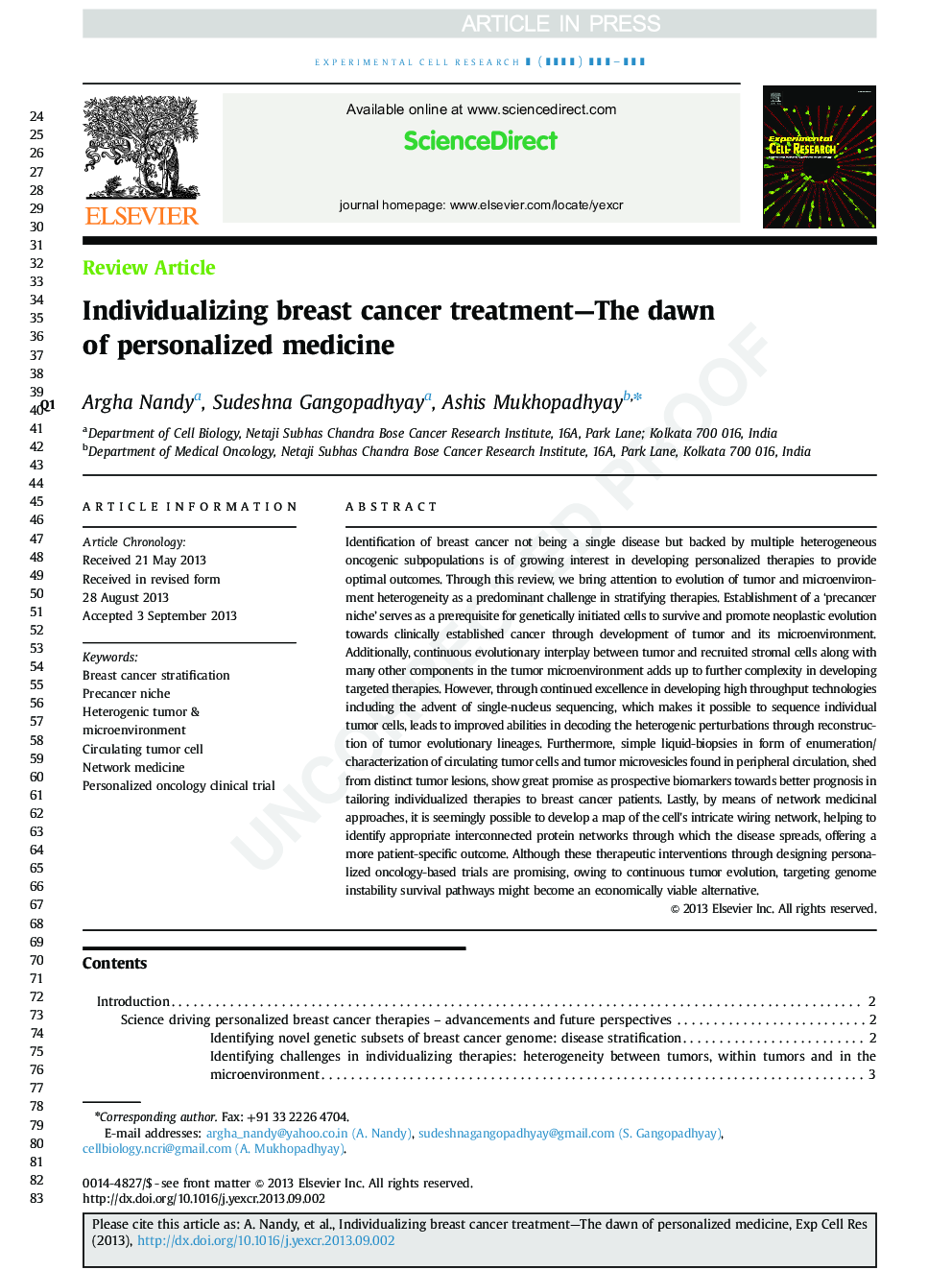| Article ID | Journal | Published Year | Pages | File Type |
|---|---|---|---|---|
| 10904188 | Experimental Cell Research | 2014 | 11 Pages |
Abstract
Identification of breast cancer not being a single disease but backed by multiple heterogeneous oncogenic subpopulations is of growing interest in developing personalized therapies to provide optimal outcomes. Through this review, we bring attention to evolution of tumor and microenvironment heterogeneity as a predominant challenge in stratifying therapies. Establishment of a 'precancer niche' serves as a prerequisite for genetically initiated cells to survive and promote neoplastic evolution towards clinically established cancer through development of tumor and its microenvironment. Additionally, continuous evolutionary interplay between tumor and recruited stromal cells along with many other components in the tumor microenvironment adds up to further complexity in developing targeted therapies. However, through continued excellence in developing high throughput technologies including the advent of single-nucleus sequencing, which makes it possible to sequence individual tumor cells, leads to improved abilities in decoding the heterogenic perturbations through reconstruction of tumor evolutionary lineages. Furthermore, simple liquid-biopsies in form of enumeration/characterization of circulating tumor cells and tumor microvesicles found in peripheral circulation, shed from distinct tumor lesions, show great promise as prospective biomarkers towards better prognosis in tailoring individualized therapies to breast cancer patients. Lastly, by means of network medicinal approaches, it is seemingly possible to develop a map of the cell's intricate wiring network, helping to identify appropriate interconnected protein networks through which the disease spreads, offering a more patient-specific outcome. Although these therapeutic interventions through designing personalized oncology-based trials are promising, owing to continuous tumor evolution, targeting genome instability survival pathways might become an economically viable alternative.
Related Topics
Life Sciences
Biochemistry, Genetics and Molecular Biology
Cancer Research
Authors
Argha Nandy, Sudeshna Gangopadhyay, Ashis Mukhopadhyay,
